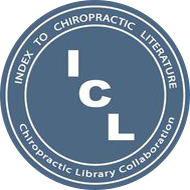Recent evidence suggests that concussion affects the autonomic nervous system (ANS), and that dysfunction of the ANS may be a factor that can contribute to persistent post-concussion symptoms. [1-3] The 2017 Concussion in Sport Group (CISG) international consensus statement on concussion in sport [4] defined sport related concussion (SRC) as a “traumatic brain injury induced by biomechanical forces.” The CISG expert consensus [4] further defined persistent symptoms following SRC as “failure of normal clinical recovery – that is, symptoms that persist beyond expected time frames (i.e. >10-14 days in adults and >4weeks in children).” Persistent symptoms following SRC does not represent a single pathophysiological entity, but a collection of post-traumatic symptoms that may be linked to coexisting and/or confounding factors, requiring a detailed multimodal clinical assessment to identify specific primary and secondary pathologies that may be contributing to persisting symptoms.[4] The American Medical Society for Sports Medicine (AMSSM) position statement on concussion in sport,[5] published in 2019, defined concussion as “a traumatically induced transient disturbance of brain function that involves a complex pathophysiological process.” This pathophysiological process was described in the AMSSM position statement [5] as being “not completely understood but has been characterised as force delivered to the brain causing disruptive stretching of neuronal cell membranes and axons resulting in a complex cascade of ionic, metabolic and pathophysiological events.”
Author keywords: Brain Concussion; Post-Concussion Syndrome; Orthostatic intolerance; Postural Orthostatic Tachycardia Syndrome; Primary Dysautonomias; Exercise Test
Author affiliation: Private Practice of Chiropractic, South Yarra, Victoria, Australia
Contact the corresponding author—brettjarosz@gmail.com
This abstract is reproduced with the permission of the publisher. Click on the above link to access free full text. Online access only.
|
